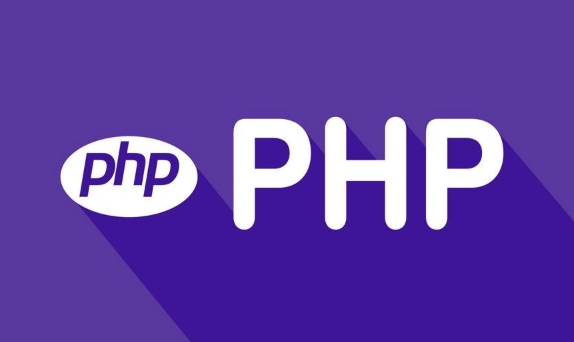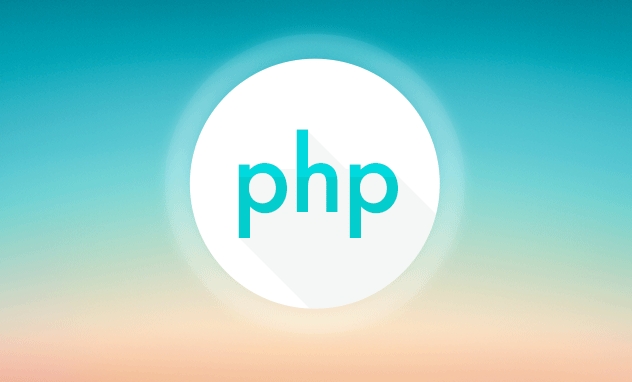 Backend Development
Backend Development
 PHP Tutorial
PHP Tutorial
 Explain the benefits of using a php framework like Laravel or Symfony (conceptually).
Explain the benefits of using a php framework like Laravel or Symfony (conceptually).
Explain the benefits of using a php framework like Laravel or Symfony (conceptually).
Jul 13, 2025 am 02:11 AMThe benefits of using the PHP framework are simplifying repetitive work, improving development efficiency, and enhancing code maintainability. 1. The routing management is clearer, without manual URL judgment; 2. ORM simplifies database operations and avoids duplicate SQL statements; 3. Built-in form verification and security mechanisms, such as CSRF and XSS protection; 4. Force code structure to facilitate multi-person collaboration and subsequent maintenance; 5. Provide a unified security solution to reduce vulnerability risks; 6. Strong community support makes it easier to find answers to questions. Framework helps developers focus on core functions. Laravel is suitable for rapid development, and Symfony is more suitable for large projects. Overall, using frameworks can significantly improve development efficiency and quality.

The benefit of using PHP frameworks such as Laravel or Symfony is not how "advanced" it is, but that it can help you simplify repetitive work, make code easier to maintain, and improve overall development efficiency. If you have ever written a project from scratch alone, you are likely to encounter problems such as confusing routing processing, duplicate database operations, and inadequate security considerations. At this time, using the framework is to find a good helper for yourself.

Less repetitive work, faster development speed
One of the biggest benefits of PHP framework is that it has done a lot of basic work for you. for example:
- Routing management: You only need to configure the URL and the corresponding controller method, and don’t have to write a bunch of
if elseto judge the path yourself. - Database operations: Frameworks usually come with ORM (such as Laravel's Eloquent or Symfony's Doctrine). You can operate the database in an object-oriented way, instead of writing SQL statements every time.
- Form verification and security protection: For example, preventing common security issues such as CSRF attacks and XSS injection, the framework has built-in mechanisms, you only need to enable or configure them simply.
Let me give you a simple example: you want the user to register an account. If you don't use a framework, you need to manually check form fields, filter inputs, connect to databases, execute insert statements... and it is also easy to miss some security details. With Laravel, you can use FormRequest for verification and Eloquent to save data. The entire process is clear and safe.

Better structure and maintainability
Framework forces you to organize your code in a certain structure, which is especially important for multi-person collaboration. For example, Laravel uses MVC architecture, while Symfony uses component design. The benefits of this include:
- The controller is responsible for receiving requests, the model is responsible for processing data, the view is responsible for displaying results, and the division of labor is clear.
- The configuration and business logic are separated, making it more convenient to modify.
- The person who takes over the follow-up doesn’t need to spend too much time understanding your “private coding style”.
If you have taken other people's projects before, you will know how difficult it is to read without structure. The framework is like unifying everyone's "language". Although we need to learn some rules at the beginning, it saves a lot of communication costs in the long run.

Security and community support are guaranteed
Many people think that "small projects do not require frameworks", but in fact, the smaller the project, the more likely it is to cause security vulnerabilities due to negligence. The framework is designed with common attack methods in mind and provides solutions. for example:
- Automatically escape the output content to prevent XSS
- Provide an authentication mechanism to avoid session hijacking
- Built-in encryption tools, such as password hashing
And there are huge communities and documents that continue to be updated. The problem you encounter is likely to have encountered, and Google can find the answer in one go. Unlike the wheel you wrote yourself, if you make a mistake, you can only check it slowly by yourself.
In general, using PHP framework is not to "show off", but to allow you to focus more on core functions and reduce the chance of getting stuck. Laravel is more suitable for rapid development, while Symfony is more suitable for building large systems or projects that require highly customized. Which one to choose depends on the needs, but it is better to use it than not.
Basically that's it.
The above is the detailed content of Explain the benefits of using a php framework like Laravel or Symfony (conceptually).. For more information, please follow other related articles on the PHP Chinese website!

Hot AI Tools

Undress AI Tool
Undress images for free

Undresser.AI Undress
AI-powered app for creating realistic nude photos

AI Clothes Remover
Online AI tool for removing clothes from photos.

Clothoff.io
AI clothes remover

Video Face Swap
Swap faces in any video effortlessly with our completely free AI face swap tool!

Hot Article

Hot Tools

Notepad++7.3.1
Easy-to-use and free code editor

SublimeText3 Chinese version
Chinese version, very easy to use

Zend Studio 13.0.1
Powerful PHP integrated development environment

Dreamweaver CS6
Visual web development tools

SublimeText3 Mac version
God-level code editing software (SublimeText3)

Hot Topics
 Comparison of the advantages and disadvantages of PHP frameworks: Which one is better?
Jun 04, 2024 pm 03:36 PM
Comparison of the advantages and disadvantages of PHP frameworks: Which one is better?
Jun 04, 2024 pm 03:36 PM
The choice of PHP framework depends on project needs and developer skills: Laravel: rich in features and active community, but has a steep learning curve and high performance overhead. CodeIgniter: lightweight and easy to extend, but has limited functionality and less documentation. Symfony: Modular, strong community, but complex, performance issues. ZendFramework: enterprise-grade, stable and reliable, but bulky and expensive to license. Slim: micro-framework, fast, but with limited functionality and a steep learning curve.
 Performance differences of PHP frameworks in different development environments
Jun 05, 2024 pm 08:57 PM
Performance differences of PHP frameworks in different development environments
Jun 05, 2024 pm 08:57 PM
There are differences in the performance of PHP frameworks in different development environments. Development environments (such as local Apache servers) suffer from lower framework performance due to factors such as lower local server performance and debugging tools. In contrast, a production environment (such as a fully functional production server) with more powerful servers and optimized configurations allows the framework to perform significantly better.
 PHP Frameworks and Microservices: Cloud Native Deployment and Containerization
Jun 04, 2024 pm 12:48 PM
PHP Frameworks and Microservices: Cloud Native Deployment and Containerization
Jun 04, 2024 pm 12:48 PM
Benefits of combining PHP framework with microservices: Scalability: Easily extend the application, add new features or handle more load. Flexibility: Microservices are deployed and maintained independently, making it easier to make changes and updates. High availability: The failure of one microservice does not affect other parts, ensuring higher availability. Practical case: Deploying microservices using Laravel and Kubernetes Steps: Create a Laravel project. Define microservice controllers. Create Dockerfile. Create a Kubernetes manifest. Deploy microservices. Test microservices.
 Integration of PHP frameworks with DevOps: the future of automation and agility
Jun 05, 2024 pm 09:18 PM
Integration of PHP frameworks with DevOps: the future of automation and agility
Jun 05, 2024 pm 09:18 PM
Integrating PHP frameworks with DevOps can improve efficiency and agility: automate tedious tasks, free up personnel to focus on strategic tasks, shorten release cycles, accelerate time to market, improve code quality, reduce errors, enhance cross-functional team collaboration, and break down development and operations silos
 Which PHP framework offers the most comprehensive extension library for rapid development?
Jun 04, 2024 am 10:45 AM
Which PHP framework offers the most comprehensive extension library for rapid development?
Jun 04, 2024 am 10:45 AM
The PHP framework extension library provides four frameworks for selection: Laravel: Known for its vast ecosystem and third-party packages, it provides authentication, routing, validation and other extensions. Symfony: Highly modular, extending functionality through reusable "Bundles", covering areas such as authentication and forms. CodeIgniter: lightweight and high-performance, providing practical extensions such as database connection and form validation. ZendFramework: Powerful enterprise-level features, with extensions such as authentication, database connection, RESTfulAPI support, etc.
 PHP Frameworks and Artificial Intelligence: A Developer's Guide
Jun 04, 2024 pm 12:47 PM
PHP Frameworks and Artificial Intelligence: A Developer's Guide
Jun 04, 2024 pm 12:47 PM
Use a PHP framework to integrate artificial intelligence (AI) to simplify the integration of AI in web applications. Recommended framework: Laravel: lightweight, efficient, and powerful. CodeIgniter: Simple and easy to use, suitable for small applications. ZendFramework: Enterprise-level framework with complete functions. AI integration method: Machine learning model: perform specific tasks. AIAPI: Provides pre-built functionality. AI library: handles AI tasks.
 Application of PHP framework in agile development and large-scale projects
Jun 04, 2024 pm 01:42 PM
Application of PHP framework in agile development and large-scale projects
Jun 04, 2024 pm 01:42 PM
The PHP framework is widely used in agile development and large-scale projects, providing advantages such as agility, scalability, and security. For example, in e-commerce websites, the Laravel framework can quickly create prototypes, handle complex business logic, ensure security, and extend functionality. By leveraging predefined components and design patterns, PHP frameworks facilitate developers to build scalable and well-maintained applications.
 Comparison of PHP framework and Python framework
Jun 05, 2024 pm 09:09 PM
Comparison of PHP framework and Python framework
Jun 05, 2024 pm 09:09 PM
PHP and Python frameworks differ in language features, framework ecology, and features. PHP is primarily used for web development and is easy to learn; Python has an extensive library ecosystem. Popular PHP frameworks include Laravel, CodeIgniter, and Symfony; Python frameworks include Django, Flask, and Web2py. In practical cases, Laravel uses the command line to generate blog models and views, while Django uses DjangoAdmin and Python scripts to create blogs.





